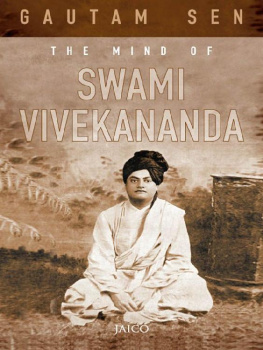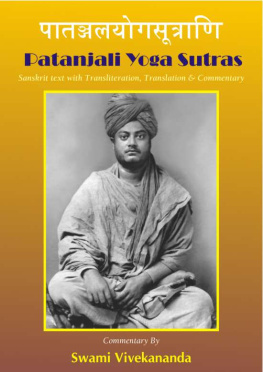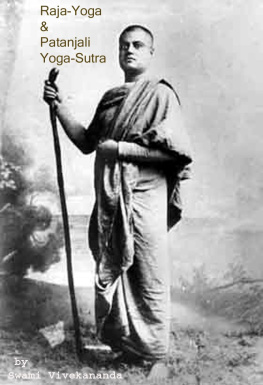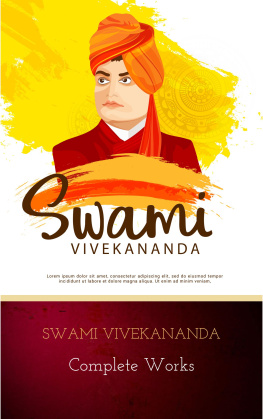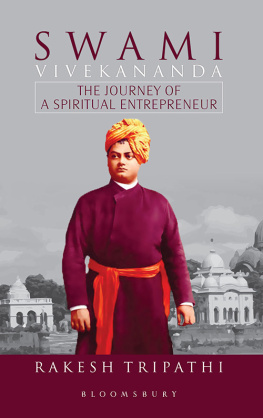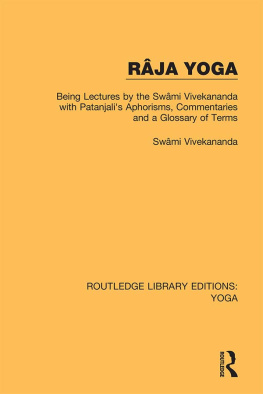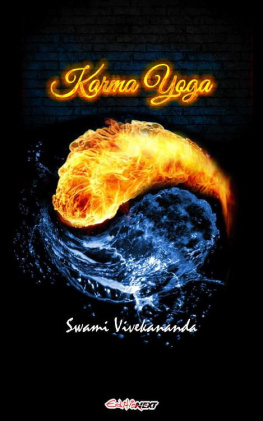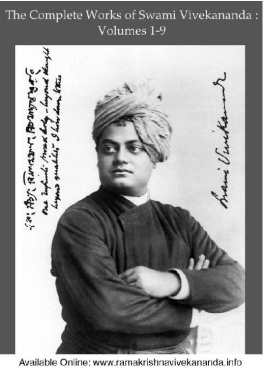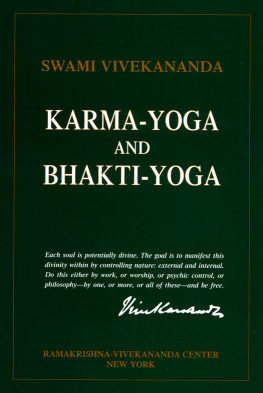No part of this book may be reproduced or utilized in any form or by any means, electronic or mechanical including photocopying, recording or by any information storage and retrieval system, without permission in writing from the publishers.
Introductory Commentary
It is a matter of common observation that after a person dies, the image that lives on in the minds of his associates often does not tally with reality. With the passage of time a few additions, ommissions and embellishments solidify into such a shape as to transform the original person into quite another character. Hence, it is not surprising that the accounts of the lives and teachings of the founders and other, leading figures of various religions should have undergone the same process .
Thus, by the time the ancient religious texts of India and the stories of the Ramayana and Mahabharata were actually written down, they were very different from their original versions. For example, the battle of Kurukshetra is described in the Mahabharata as an earth-shaking struggle in which practically every king in India participated; but a study of other sources, including the excavations at Hastinapur, seem to indicate that the battle was a purely local one fought between two Aryan groups.
Then we have the case of Mohammad who made no claims to performing any miracle other than bringing the Koran. However, posterity could not refrain from ascribing to him a miraculous birth and generally immersing him in the supernatural: Mohammad cast no shadow, his perspiration created the rose, he ascended to heaven on the winged horse Buraq, etc.
In the traditional Buddhist account of the life of Buddha, the Hindu God Brahma is seen descending from the heavens to plead with him to spread the new doctrine lest the world should perish. The fabrication and its purpose are transparent enough not to merit any further comment.
As for Jesus Christ, not only do we not have the foggiest notion as to what he really looked like, but tradition has also erred regarding the precise year of his birth. In this regard, it would be more revealing to know how the Bible, as we know it today, was allegedly compiled at the First Council of Nicaea.
But first for the background: The young non-Christian Roman General Constantine, an aspirant to the throne, was pitted against the numerically superior force of a rival claimant, Maxentius. The night before the battle Constantine has a dream or vision in which he is commanded to conquer in the name of Christ. The following day Constantine has his pagan soldiers carry the XP, the Greek symbol of Christ which is also a Symbol of the pagan sun God Chronos and emerges victorious. Having become the emperor of Rome, he issues the decree of tolerance whereby Christians are permitted to pursue their faith free of the persecution they were subjected to earlier.
The Christians of the time are sharply divided on the true tenets of Christianity and in fact, on the very nature of its founder: was he a man or the only incarnate son of God, or both? Constantine wants the Church to be a politically integrating force, the cement of the empire, but first the Christians must settle their religious differences and arrive at a firm consensus. After all, if the Church is to provide effective support to the Roman Empire, it cannot afford dissension within its own ranks. It must speak with one clear voice. And so the First Council of Nicaea is summoned in A.D. 325 with 300 religious leaders participating, in order to separate the grain of Biblical literature from its chaff.
Sybil Leek in her book Reincarnation: The Second Chance describes what ensued. When agreement will not easily come about, it is decided to submit the matter to none other than Providence. All the books referred to the council for determination having been, in the words of the council historian Pupus, promiscuously put under the communion table of the church, the Lord is beseeched to place the inspired writings on the table, leaving the rest beneath, and, it happened accordingly! Other sources tell us that five dissidents were banished, and anyone who did not deliver up his books to be burned was threatened with death. Granting the validity of Sybil Leeks account, one is left wondering as to how accurately Jesuss life and teachings were transmitted to posterity.
Also in this context, the observations of the renowned scholar and Orientologist Proferssor F. Max Muller on what he terms the Dialogic Process not only affords food for thought, but are, to my mind, incontestable: Thisprocess as applied to the facts of history, he explains, comprehends all the changes which are inevitably produced by the mere communication and interchange of ideas, by the give and take of dialogue, by the turning of thoughts from one side to the other There is hardly a single fact in history which can escape being modified by this process before it reaches the writer of history. It must be distinguished from the Mythological Process, which forms indeed a part of it, but acts under much more special rules. We can watch the Dialogic Process in Modem History also, though we have here reporters, and newspapers, the autobiographies and reminiscences of great statesmen which would seem to render this Dialogic infection impossible or harmless. We can only guess what it must have been in times when neither shorthand nor printing existed, when writing and reading were the privilege of a small classIt is extraordinary that so many historians should have completely neglected this Dialogic Process through which everything must pass before it reaches even the first recorder, forgetting that it could never have been absent. How many difficulties would have been solved, how many contradictions explained, nay how many miracles would become perfectly natural and intelligible, if historians would only learn this one lesson, that we do not and cannot know of any historical event that has not previously passed through this Dialogic Process.
Swami Vivekanandas Guru Sri Ramakrishna expressed the same idea in a different way: The Vedas, Tantras, and the Puranas, and all the sacred scriptures of the world, have become as if defiled (as food thrown out of the mouth becomes polluted) because they have been constantly repeated by and have come out of human mouths. But the Brahman or the Absolute has never been defiled, for no one as yet has been able to express Him by human speech. Asked why religions degenerate, he answered: The rain-water is pure, but becomes soiled according to the medium it passes through. If the roof and the pipe is dirty, the discharge is dirty.
A study at the world religions shows, that despite a common belief in a level of being that is higher than our ordinary or normal human state, there are numerous disparities which, at their face value, seem irreconciliable. Orthodox Christianity, for instance, refuses to have anything to do with the doctrines of rebirth and Karma set out later in this book, which are central to both Hinduism and Buddhism.




